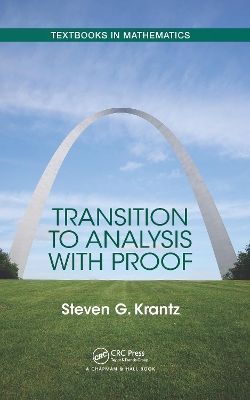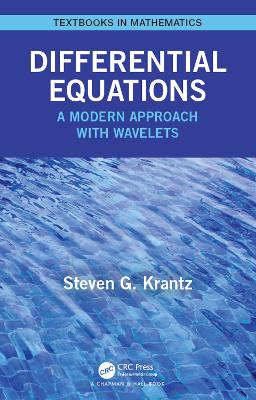Textbooks in Mathematics
2 total works
Transition to Real Analysis with Proof provides undergraduate students with an introduction to analysis including an introduction to proof. The text combines the topics covered in a transition course to lead into a first course on analysis. This combined approach allows instructors to teach a single course where two were offered.
The text opens with an introduction to basic logic and set theory, setting students up to succeed in the study of analysis. Each section is followed by graduated exercises that both guide and challenge students. The author includes examples and illustrations that appeal to the visual side of analysis. The accessible structure of the book makes it an ideal refence for later years of study or professional work.
- Combines the author’s previous works Elements of Advanced Mathematics with Foundations of Analysis
- Combines logic, set theory and other elements with a one-semester introduction to analysis.
- Author is a well-known mathematics educator and researcher
- Targets a trend to combine two courses into one

